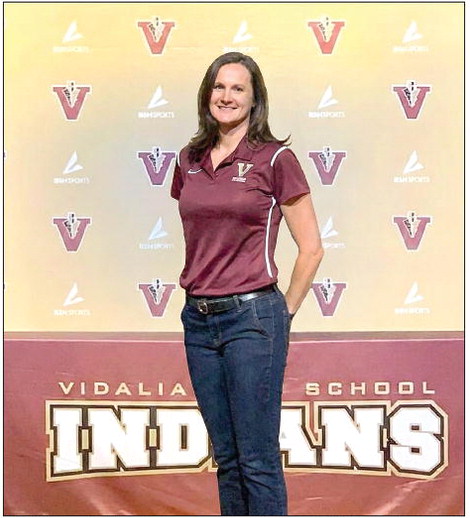Tillery: Week Ten Highlights


The Senate has switched gears this week, tackling House bills and ramping up committee meetings in order to finish legislation by March 31. We’re down to only five legislative days, and while we’ve accomplished a lot up to this point, there’s still work left to be done. The Fiscal Year 2022 (FY22) budget has consumed most of my time, and the Senate is nearing its final proposal, which I’ll be able to provide an overview of shortly. Many of your concerns are also still on the table, including elections reform. We’ve been doing our due diligence to try and pass legislation that addresses that, and other critical issues, in the best possible way. From the start of the legislative session all the way up until Crossover Day, the Senate has been crafting legislation that proposes changes to the way we conduct our elections. Our priority has been on restoring integrity in these processes, and that hasn’t changed as we shifted to House bills. This week the Senate Ethics Committee met almost every day to hold hearings on House Bill 531, the House’s version of a large and extensive elections reform package comparable to our Senate Bill 241. While some sections of the House bill are similar to SB 241, several parts differ. Similarities include setting limits on portable polling places and requiring some kind of identity verification (like a driver’s license number) when requesting an absentee ballot. Some of the areas specific to HB 531 are adjusting the time period when someone can request an absentee ballot, establishing provisions for when a precinct is experiencing long wait times, and providing regulations for where a ballot drop box must be located. The Senate Ethics Committee is expected to introduce a substitute that will most likely try to align the two bills and that should be voted on by the committee next week.
When the state reopened back in the summer, one of the main concerns we had as a legislature was making sure our businesses were able to withstand the financial hardships of the pandemic and to also do it safely. In response to that, we passed Senate Bill 359 last year, the “Georgia COVID- 19 Pandemic Business and Safety Act.” This bill kept local businesses protected against liability claims from people contracting COVID-19 on their premises, as long as it wasn’t due to reckless behavior or malicious intent. House Bill 112 extends the timeline for the protections of this bill up to June 2022. This makes sure that our businesses can continue to stay afloat and our economy stays strong despite new and changing information about the virus.
Georgia, as you know, is also strongly committed to improving our foster care system, and we are always working to find ways we provide more kids with a safe home. House Bill 114 relates to that by increasing the tax credit for people who adopt a foster child from $2,000 to $6,000 for the first five years of fostering and provides a $2,000 credit every year after that until the child turns 18. Fostering and raising an adopted child helps provide these kids with a better life, but we also understand the challenges it can bring. This bill also makes smart financial sense because, on top of providing a more stable, loving environment for children, the tax credit is still less than what the state pays to house our foster children in state homes. It’s truly an economic and societal win-win. We’re grateful to everyone who made the decision to support the children in Georgia, and HB 114 provides some financial ease to those helping our adoption system succeed.
House Bills 593 and 511 are other bills that relate to our state finances. HB 593 gives a tax cut to hardworking Georgians who have kept the state operating even in the middle of the public health crisis, by increasing the standard deduction from $4,600 to $5,400 for single filers, $3,000 to $3,550 for those married but filing separately, and from $6,000 to $7,100 for those married and filing jointly. HB 511 requires truth in advertising among Georgia’s fees by requiring the levied fee to go to its dedicated source. For example, Georgians pay a $1 scrap tire fee when buying new tires. In the past this fee could be redirected to the state general fund. HB 511 requires it be used for the Solid Waste Trust Fund which supports the removal of scrap tires. This bill also includes the creation of the State Children’s Trust Fund, which would take fees collected on child support and force them to be used for the Division of Family and Children Services to help them manage their systems. This bill is about making sure our state’s funds and dedicated fees are being used for their designated purpose.
The Senate will convene for three more legislative days next week (Monday, Tuesday and Thursday) with committee work days in-between. Committees should be done reviewing legislation by then, and we’ll start to focus all of our efforts on passing bills in Chamber. The FY22 budget will also be presented, and soon we’ll be able to finish our constitutional responsibility of passing a balanced budget. I look forward to detailing to you the areas where we were able to save and the programs we were able to increase allocations to. If you have any questions about the budget or our legislation here, please reach out to my office. Thank you for letting me serve you.
Sen. Blake Tillery serves as Chairman of the Senate Appropriations Committee. He represents the 19th Senate District, which includes Appling, Jeff Davis, Long, Montgomery, Telfair, Toombs, Treutlen, Wayne, and Wheeler counties and a portion of Liberty and Tattnall counties. He can be reached by email at blake. tillery@senate.ga.gov.
By Sen. Blake Tillery (R-Vidalia)





